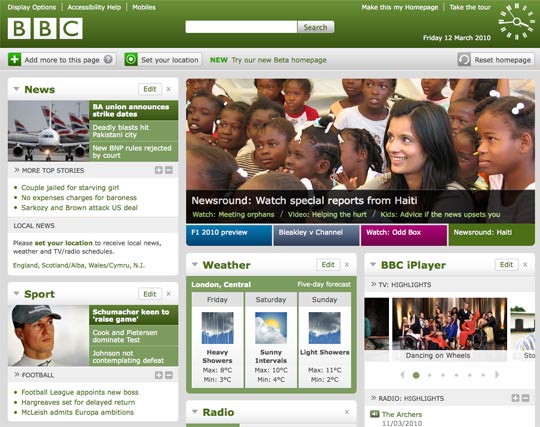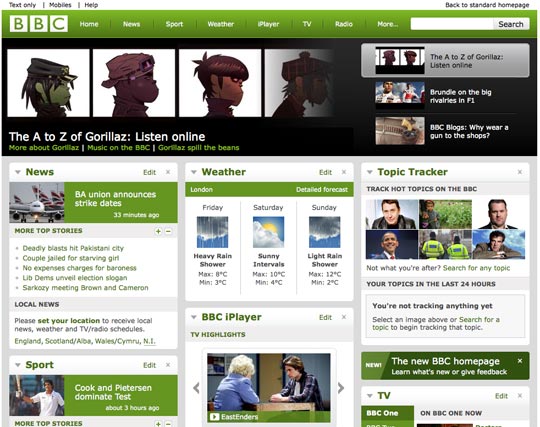We recently reported on an innovative departure from normal BBC broadcasting practice: a six hour live translation experiment called SuperPower Nation.
Various BBC International News channels broadcast from the event on 18 March 2010, where speakers of different languages tried to communicate without relying solely on English. It involved music and theatre, as well as face-to-face and online discussion.
While the SuperPower Nation ‘hub’ was in London, participants also gathered in cafes and centres around the world – or took part from their own homes.
A live message board simultaneously translated the conversations into Arabic, Chinese, English, Indonesian, Persian, Portuguese and Spanish using Google translation software.
A breakdown of some of the conversations can be found at this link.
Now the BBC reports on how it did: it received 11,711 messages, from 2,078 locations around the world.
English, unsurprisingly, still led as the dominant language, with 5626 messages, followed by 2767 in Spanish and 1781 in Portugese.
Less popular were Arabic (208); Persian (146); Chinese (simplified) (126) and Indonesian: (31).
BBC World reporter Dave Lee, says that the event was “perhaps the toughest scrutiny” of Google’s translation software to date. He reported:
“This is the largest translation project I’ve ever worked with,” said Chewy Trewhella, new business development manager for Google.
(…)
The translations were far from perfect in places, but Mr Trewhella added: “It’s about trying to get the message across… [users] are happy with 80-90 per cent effectiveness.”

